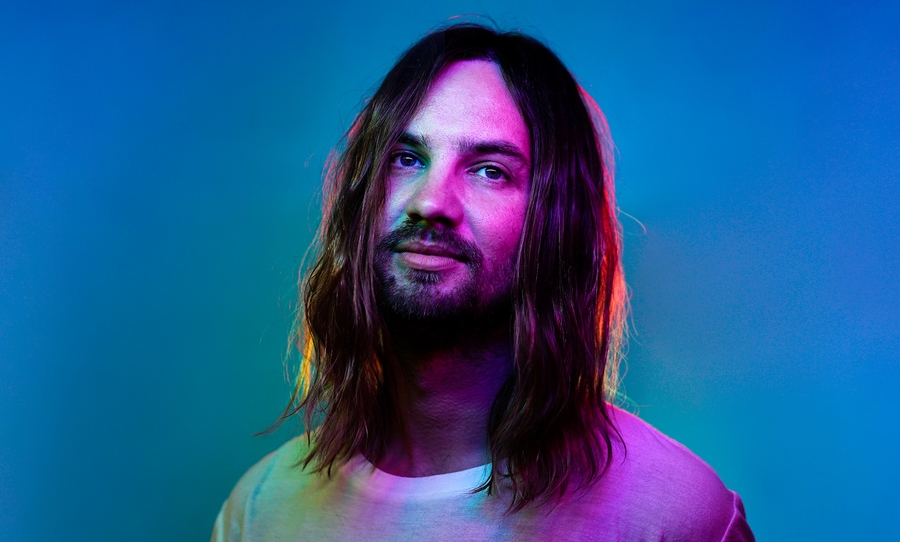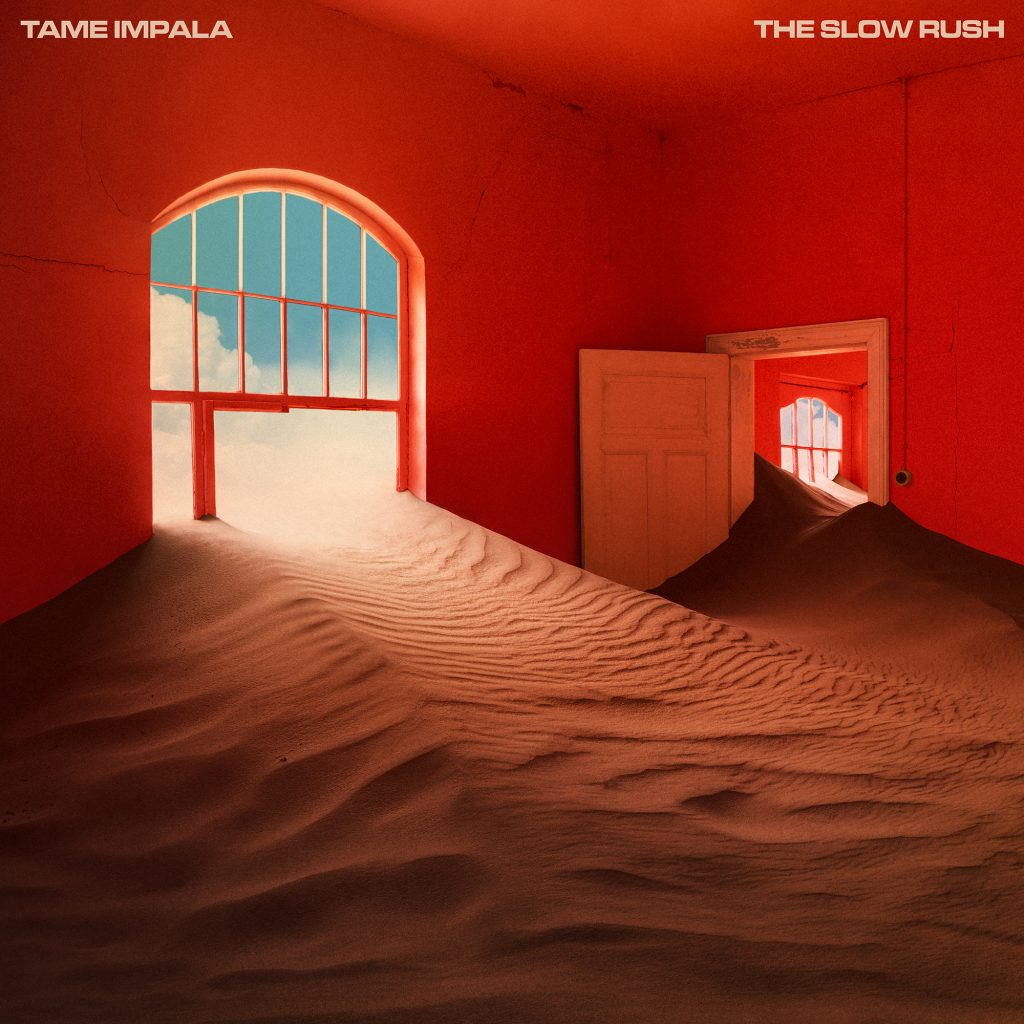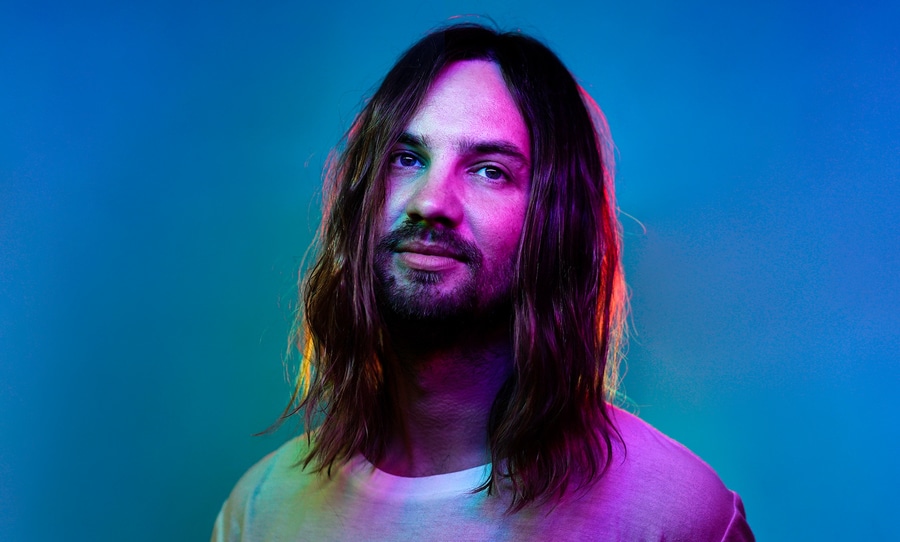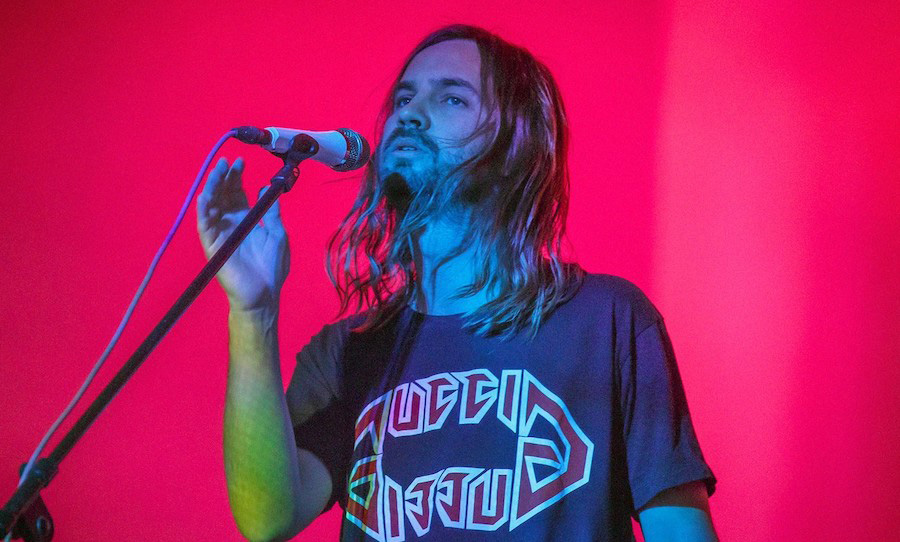The party’s over. But Tame Impala‘s Kevin Parker wishes it could go on for just a little longer.
On his fourth album, The Slow Rush, Parker confronts a romanticisation of youth and the inevitable passing of time.

On The Slow Rush, Tame Impala defies genre and time in an attempt to hold onto a single moment. And it succeeds.
When you trace the evolution of Tame Impala, what you notice is a slow sharpening. From the hazy, laconic landscapes of 2010’s Innerspeaker through to the crisp, self-assured world of 2015’s Currents, there is a calculated refinement, both in production and in songwriting. Parker is chasing clarity, and in many ways it echoes the journey towards inner clarity that comes with growing older.
It’s fitting then, that on The Slow Rush, Parker comes face to face with that very idea; growing up. Rather than embracing it, the album represents a moment of inner turmoil. A yearning to prevent the inevitable passing of time leads to an unbearable feeling of stasis: The Slow Rush.
The album opens with One More Year. It’s a track which embodies the paradox of the record’s title, a delaying of time. Shuddering, heavily-treated vocals herald the beginning of the LP. They hang alone in empty space, somewhat otherworldly. Soon, a driving dance beat kicks in, and the song takes form.
“Do you remember we were standing here a year ago? / Our minds were racing and time went slow,” Parker sings. “We’re on a rollercoaster stuck on its loop-de-loop / ‘Cause what we did one day on a whim, has slowly become all we do.”
The trance-y track isn’t marked by grand choruses. It’s a slow-burning number which is constantly building. “Why don’t we just say, ‘one more year?'” Parker sings. “One more year,” is echoed by warped backing vocals. It feels like the cry of a person in the throes of addiction, trying to reconcile it with themselves when they know deep down they have to quit. The word “today” rings out with endless delay repeats. It seems Parker is trying to pin down the present moment, to hold on to it, to face it.

“I never wanted any other way to spend our lives,” he ends the song with resignation. “Now one of these is gonna be the last for a long time.”
On Instant Destiny Parker relapses into fantasy. Laidback beats and arpeggiating synths create a cool backdrop against which he muses about the things he could do; “get a home in Miami, go and get married, tattoo your name on my arm.”
’70s-inspired first single Borderline hits with a fresh sense of purpose. The quintessential, groove-oozing Tame Impala bass lines are on point, but Parker also explores the realms of fresh instrumentation; jangly guitars and flutes. But he most captivating element here is the melody, cadences aching, qualified for endless repetition.
The album takes a slower turn with Posthumous Forgiveness, a track penned to his late father who died in 2009. It’s 1960s psychedelia meets 2020s autotune, the pleasurable bewildering of history which allows Tame Impala to exist in a dimension of its own. It’s fitting because Posthumous Forgiveness is about exactly that, a conversation with the dead – an act which defies the logic of time.
More than ever, on The Slow Rush, Parker dissolves categorisation, blurring binaries of pop and rock, psychedelic and electronic. Yet there’s even more; disco, funk, R&B, soul. In a way, it feels like a return to the old Kevin Parker through the lens of the new one.
There’s a movement away from the slick pop structures and catchy choruses of Currents, and a recalling of some of the opaque textures that earned Tame Impala the initial reverence of fans on Innerspeaker and Lonerism. There’s a sense of mystery, the landscapes more emotional than rational. Parker is taking you to the edge of the universe, just to let you stare into the ether.
But there are still moments reminiscent of Currents. Certainly, the tracks released as singles are most evocative of the 2015 predecessor. This year’s driving single, Lost In Yesterday, mixes funk with crisp pop production. It’s so effortless it almost feels like he’s playing with you.
At the beginning of this song, Parker laments: “When we were living in squalor, wasn’t it heaven? Back when we used to get on it, four out of seven.” It can’t help but feel nostalgic, taking you back to the very opening lines of Innerspeaker, where a 24-year-old Kevin Parker was lamenting the fact that “She doesn’t like the life that I lead / Doesn’t like sand stuck on her feet / Or sitting around smoking weed.”
Parker is the stoner-nerd who stumbled upon international stardom and finds himself wrestling with the inherent tension of that every day.
In the middle of Lost In Yesterday, Parker declares “If it calls you, embrace it. If haunts you, face it.” It feels like the moment of epiphany he didn’t even realise he was searching for. The Slow Rush is Parker facing what he’s haunted by, and even more so, learning to embrace it.
By the time we get around to It Might Be Time, we feel like that “one more year” that Parker gave himself at the beginning of the album has just about expired. “It might be time to face it, it’s not as fun as it used to be,” he acknowledges. “You’re not as young as you used to be.”
“Suddenly, all my friends are growing up and moving on / I must be missing something / ‘Cause I just want to keep this dream alive for now / … Nothing lasts forever.”
One More Hour is the final countdown, a perfect mirror to the album’s beginning. “Whatever I’ve done, I did it for love.” This is Parker’s dictum. As One More Hour fades to nothing, you know that Parker is finally ready to embark on the next phase, whatever that may be.
In a way, through The Slow Rush, Kevin Parker manages to do exactly what he is yearning for. Stop time. Even just for 57 minutes.
The Slow Rush is out February 14th. Grab your copy here.



